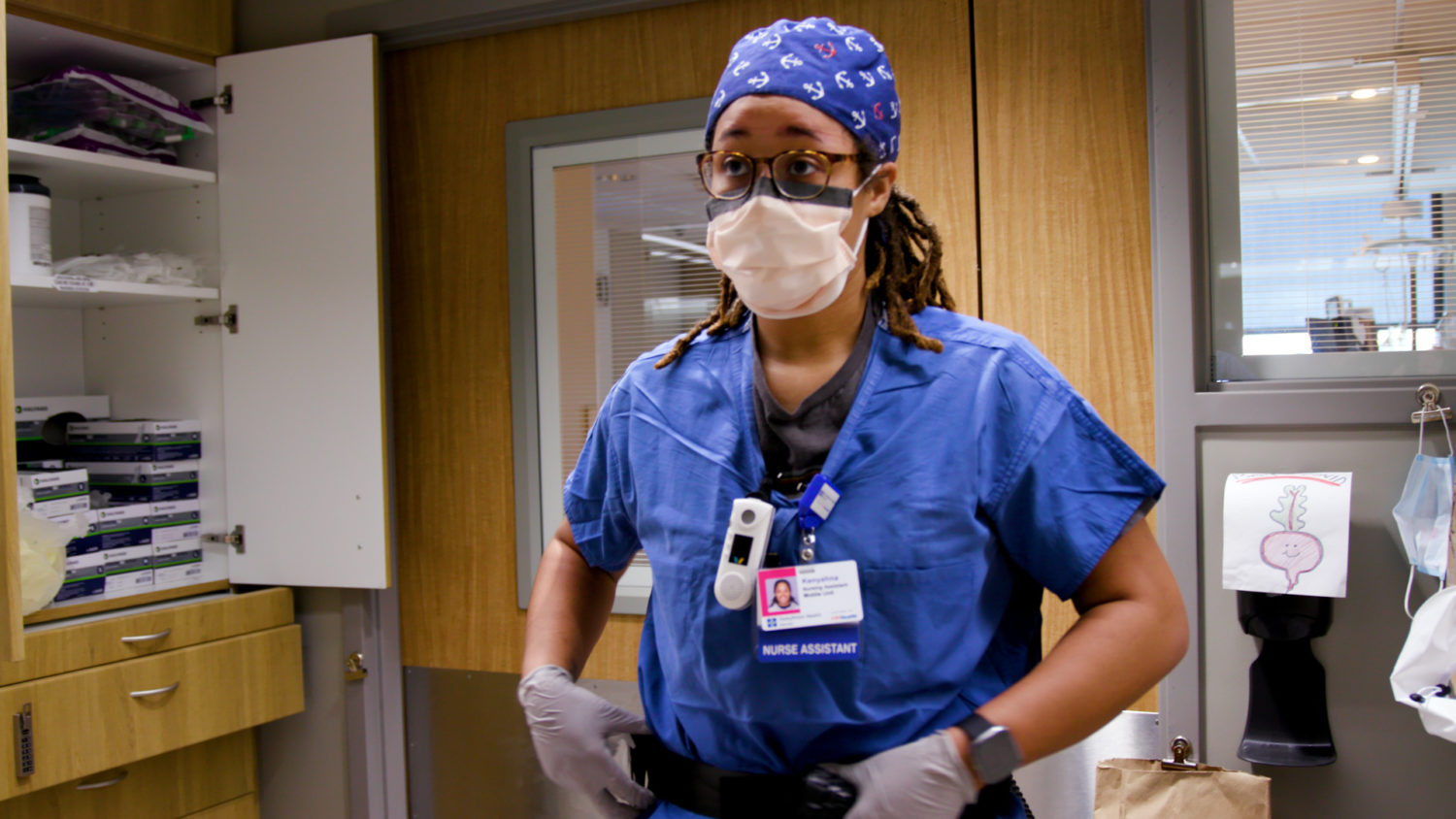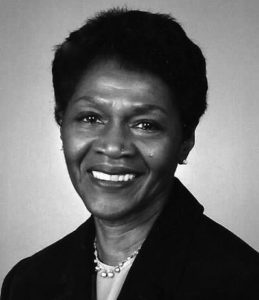
Special promotional content provided by UnityPoint Health-Meriter.
Kenyahna Holmes had a good job in housekeeping at Meriter Hospital, but wanted more.
“I always wanted to move up and go a step higher,” she said. “And I never really knew how.”
She saw openings for certified nursing assistants (CNA) but couldn’t access the training required to move into one of those jobs.
“I like helping people … I always wanted to be a CNA, so I looked into classes and things like that. But when it came to money and having basically the time, because I’m always working, I didn’t really have that,” she said.
Now, though, she’s fully certified and working as a CNA, thanks to the Gloria Jones-Bey Nursing Assistant Program, a new initiative at UnityPoint Health-Meriter to help more people of color enter the CNA ranks.
The program provides classroom and clinical training to existing employees of UnityPoint Health-Meriter who identify as people of color, gives them paid time to complete the training, and pays for their licensure exams.
So far 11 people — nine women and two men — have completed the two-month training and earned their certifications. The goal is to have two cohorts of eight people complete the program every year.
The program is one step toward overcoming systemic inequality in health care employment as well as patient care, said Sarah Jacobs, UnityPoint Health-Meriter Diversity, Equity and Inclusion Manager.
“Back in 2018, the Wisconsin public health association passed a resolution that declared racism as a public health crisis. And that’s something that Meriter signed onto,” Jacobs said. “Institutionalized and systemic racism has led to racial inequalities and obviously virtually every sphere of life. It also creates barriers, both in access to care and pathways to a healthy life, as well as representation within that healthcare system.”
Jacobs said recruiting existing employees into the program makes sense.
“We’ve got these awesome, talented, mission-driven folks who know our organization and they know our patients,” she said. “When we’re able to provide that pathway to education and certification, that also increases our retention of these awesome, really invested, driven folks within our organization. And then of course, all of that has a direct impact on patient care.”
The program was the brainchild of Lisa Urban, Director of Development for Corporations and Foundations at the UPH-Meriter Foundation, who last year brought the idea to the former DEI Manager. Stakeholders across the organization got involved and turned the idea into reality.
“This is a great example of people throughout the organization recognizing a way that they can impact tangible change in the sphere of DEI and stepping into leadership roles called for by the program needs,” Jacobs said.

The program is named for Gloria Jones-Bey, the former vice president of patient care at Meriter Hospital. Born in Georgia and raised in New York, she began her career as a medical technician. In 1967, she graduated magna cum laude from Long Island University, earned a Master’s in Public Administration from New York University in 1971 and completed post-graduate work in health care economics. She came to Madison in 1978 and contributed significantly to innovative program development and quality improvement at Meriter Hospital, until she retired in 1995. She continued to serve on the Meriter Hospital Ethics Committee and Board of Directors. In her retirement, she turned to teaching, helping tp Edgewood’s Graduate Nursing Program and was awarded an honorary Doctorate of Humanities from the college in 2001. She taught undergraduate students in the business program at Madison College until her passing in 2016. For her entire career, she advocated for nurses and worked diligently for quality nursing care.
Jacobs said UintyPoint Health-Meriter leaders hope the CNA certification might lead some to continue to pursue nursing education and become registered nurses. They also hope to expand the program beyond Meriter to all nine UnityPoint Health regions, and even beyond the current crop of employees to involve other members of the community.
“We’ll start with the organizations that we already have strong partnerships with and look to the spring timing to coincide with high school senior graduation,” Jacobs said.
“Another benefit of this program is that it really changes the demographics of those who are providing direct patient care,” she said. “And there’s a saying that goes, you can’t be what you can’t see. And that’s why representation matters. When you have people who look like me and look like other people of color providing the care, then other people see that and recognize that’s a possibility, that’s a professional pathway that they can achieve, that they can pursue.”
For Holmes, one of the newly-minted CNAs, it’s all about the patients.
“I like working as a CNA because I get to interact with patients more,” she said. “I actually go in and have conversations with patients, get to know them more. That’s my favorite part.”



